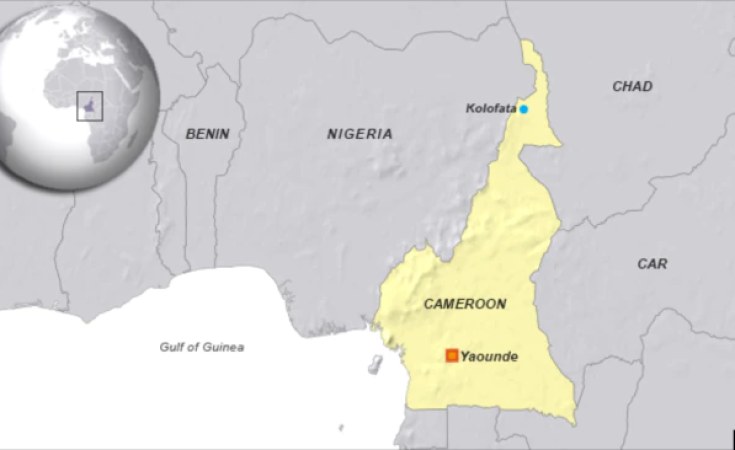Yaounde, Cameroon — Authorities in Cameroon have rebuilt a bridge that Boko Haram militants destroyed in 2015 in an effort to damage trade with Nigeria and Chad. The government also deployed additional troops to protect construction workers repairing other damage caused by the militants, who are still actively launching attacks in the border area.
Cameroon says it has for the first time in eight years fully opened the Mayo Limani bridge that links northern Cameroon and southeastern Nigeria.
According to Bichair Hachimi, the traditional ruler of Limani, civilians, especially merchants, were celebrating the full reopening this Monday of the 120-meter-long Mayo Limani Bridge that links Amchide in Cameroon and Limani in Nigeria. He said people are grateful because economic activity will receive a boost on both sides of the border after eight years of almost no activity.
Bichair spoke during a meeting in Yaounde Monday to evaluate the Cameroonian government-sponsored projects on the northern border with Chad and Nigeria that experience Boko Haram attacks.
Amchide is a commercial town on Cameroon's northern border with Nigeria. Limani is a business hub in Nigeria's Borno state.
The Nigerian government says Borno state is an epicenter of Boko Haram terrorism. Cameroon says militants commit atrocities on both sides of the Cameroon-Nigeria border.
Huge portions of the Mayo Limani bridge collapsed in August 2015 during battles between the Cameroonian military and Boko Haram militants. Cameroon said it lost several troops and that dozens of militants were killed in several weeks of fighting.
Several hundred vehicles could no longer cross the road each day, the Cameroonian government said.
Chad, Cameroon and Nigeria say at least 400 merchants and 600 civilians from the three neighboring states cross the Mayo Limani bridge each day.
Cameroon says it collected over $16 million annually as custom duties in the area before the bridge crumbled in 2015.
Cameroon spent an estimated $3 million to rebuild the span that same year, but Boko Haram militants chased construction workers away, forcing officials to stop pedestrians from crossing the bridge which is also a gateway to Nigeria for goods from Chad.
Cameroon's government said it also closed the bridge because Boko Haram fighters were infiltrating merchants and civilians to use the bridge as an entry point to attack Cameroon.
Construction work on the bridge fully began in 2018 under the protection of troops of the Multinational Joint Task Force of the Lake Chad Basin Commission, or MNJTF. The force has troops from Nigeria, Niger, Cameroon and Chad. The government announced on Friday that construction work is complete and that the MNJTF will continue to protect the bridge.
Last week, Cameroon's public works minister, Emmanuel Nganou Djoumessi, led a delegation of senior government and military officials to the bridge and other roads the central African state's government is rebuilding on its northern border with Chad and Nigeria.
Djoumessi said that Cameroonian President Paul Biya wants all infrastructure destroyed in battles with Boko Haram to be rebuilt. He said by constructing roads and bridges, commercial exchanges among Cameroon, Chad and Nigeria will improve, economic growth will be boosted and the well-being of civilians who have been living in abject poverty because of Boko Haram terrorism will be improved.
The Cameroon military says although Boko Haram atrocities are greatly reduced, more troops will be deployed to protect civilians and workers on the northern border -- where hardly a day goes by without reports of attacks on workers.
The conflict that began in northeast Nigeria in 2009 before spreading to neighboring countries, including Cameroon, Chad and Niger, has killed more than 36,000 people, mainly in Nigeria, and three million people have fled their homes, according to the United Nations.


